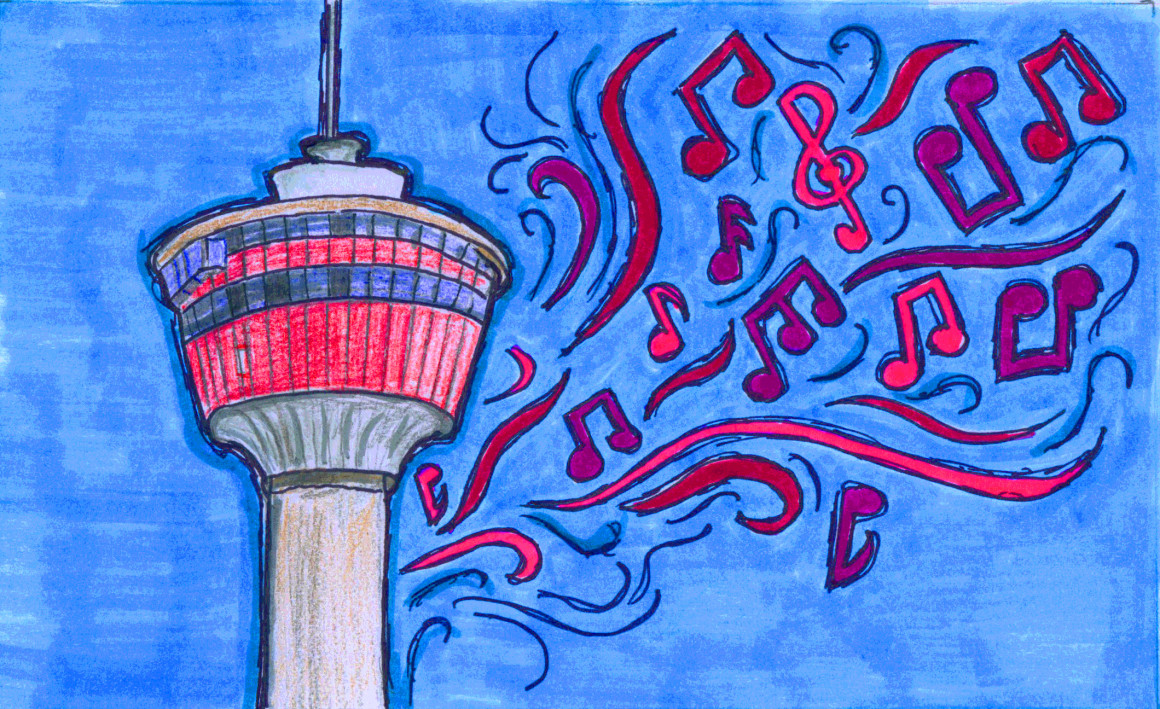
Calgary should embrace the arts
Calgary’s economy isn’t doing too hot right now. As the price of oil continues to fall, our city’s unemployment rate has risen to the highest it’s been since 1996. And there’s little reason to believe this will change anytime soon.
But every cloud has a silver lining. The possibility of Calgary losing its reputation as an economic hub for oil and gas means we have a chance to try something new. Our old identity is dying, but that doesn’t mean the city has to die with it.
This economic downturn has made it clear how much of Calgary is built on oil and gas. As the energy sector declines, jobs in manufacturing and construction have also taken a hit. We have built an identity behind one industry, and only now that this industry is rapidly falling apart are we starting to question the wisdom of this decision. Like Detroit before us, it can feel like Calgary is destined to crash and burn.
But Calgary has more than just oil and gas going for it, despite what many people assume. While often overlooked in favour of cities like Vancouver and Montreal, the arts scene in Calgary is nothing to scoff at. And, unlike the energy sector, it’s growing.
Calgary’s arts scene has always existed, though mostly hidden in the shadow of the city’s industry-fueled reputation. It was a local scene that seemed non-existent to anyone outside the city. But as our old identity is being stripped away, Calgary’s cultural identity is beginning to assert itself on a national scale.
Now, no one can deny that Calgary is a major contributor to Canadian arts. Last year, two of the bands on the Polaris Prize shortlist were from Calgary — the same number as bands from Vancouver. More television shows and films are shooting here. Calgary will even host the Juno Awards later this year, where we’ll be able to show off the newly completed National Music Centre — a massive, $191-million building filled with exhibition spaces, music venues and recording studios.
And this surge in Calgary’s arts scene is good for more than our public image. Last year’s Sled Island music festival resulted in $3.4-million of economic activity. Sled Island isn’t alone either — events like the Calgary International Film Festival, Calgary Comic and Entertainment Expo and Calgary Folk Fest all bring people to the city. Tourism is currently only a small part of Alberta’s economy, but it could play a bigger role in the province’s future.
Small, untraditional parts of Calgary’s arts scene have also started gaining traction, as festivals like High Performance Rodeo, Fairy Tales Film Festival and the newly-created Femme Wave provide more opportunities for niche artists to find an audience. The city is even becoming a hotspot for independent game developers, so aspiring artists no longer feel forced to move to Vancouver or Toronto if they want to make a living.
But this surge in Calgary’s arts scene is just as likely to fizzle out as the oil industry if the city doesn’t take advantage of it. More can be done to incentivize cultural growth, like providing funding grants for local events or tax credits for game developers and film studios. Programs like these are used by other provinces to great effect, and we need to do the same if we want to start building a serious creative industry in Calgary.
With the economy in its current state, now is the perfect time to get to work diversifying our city’s economic backbone. Our already blossoming arts scene may be our best shot at a new Calgarian identity. While oil isn’t a renewable resource, creativity is. And Calgary has a lot of it — just waiting to be tapped.
Sean Willett, Gauntlet Editorial Board
